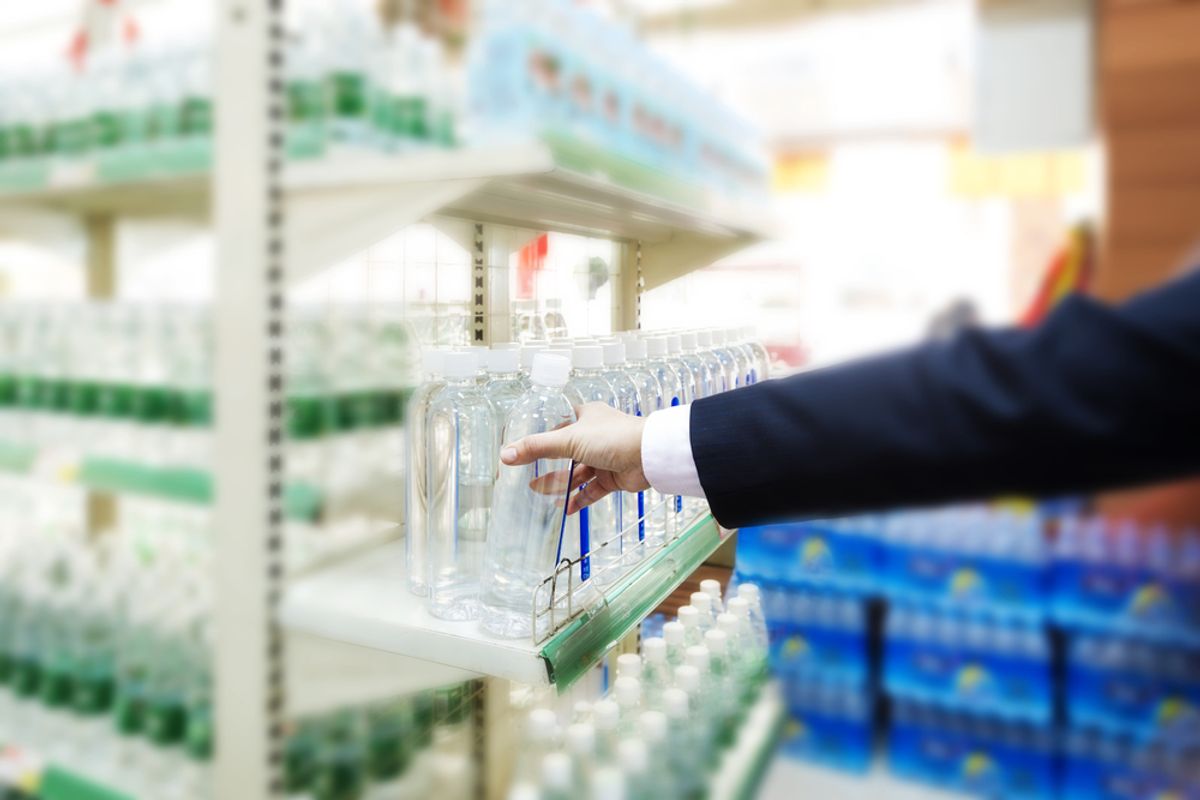For many in West Virginia, finding ways to avoid drinking the water has become the new normal, reports Rolling Stone contributor Heather Rogers. The 300,000 people whose drinking water was contaminated by a coal industry chemical spill have been told that the water is now "appropriate" and "usable for all purposes," but never, in the words of their governor, that "absolutely, 100 percent ... everything is safe."
"Rather than life actually returning to normal," Rogers writes, "it seems that many local, state and national authorities are set on creating conditions meant to seem normal, which, in its own sad way, is almost as troubling as the 10,000 gallons of chemicals that poured into the Elk River."
Those conditions involve balancing information with superstition, worries over long-term health risks with daily inconveniences of trying to live without tap water -- not to mention the expense. Such is the case for Sharon Satterfield, a 68-year-old grandmother:
The time is just past noon and Satterfield, whose ex-husband died from cancer six years ago, is warming a lunch of canned chicken soup and microwave macaroni and cheese for her three granddaughters, aged four, three and one. Packaged foods are now the norm in the house, as is the use of paper plates, plastic forks and disposable wipes. Before the two older girls sit down at their miniature table in the living room, Satterfield squirts antibacterial sanitizer into each pair of hands, making sure the girls rub it in. "This is how we do it now, no hand washing from the tap," she says. Back at the stove, she stoops her head to check the temperature dial on the rear burner that's heating a pot of bottled water. This is for washing the few dishes and pans she uses, like the two older girls' sippy cups. Rinsing the cups and lids almost empties the water pot, using half a gallon of what many people here call "good," that is non-local, water. A few moments later, the three-year-old, in sequined pink cowboy boots, tiptoes into the kitchen and whispers that she wants hot dogs instead of soup. Satterfield pours a quart of water into another pot to cook the wieners. She goes through a gallon of clean water before lunch is even served.
Like thousands of families in the area, the Satterfields now live virtually without running water. Life in West Virginia wasn't all that easy to begin with. It is the third poorest state in the country; almost 18 percent of its population lives below the poverty line. Many people in the spill zone are now spending a chunk of their paychecks simply to have access to clean water — a necessity so fundamental it's one that people in a developed country should expect.
Since the spill, Archie Satterfield, Sharon's son, has doled out about $400 on disposable goods and bottled water, in addition to all the extra gas he's burned driving to his sister's house in another county to do laundry, and bathe himself and his kids. One way he saves money is to replenish his drinking water at the office where he's a cleaner — one of his two jobs — which is on a different water system. There he'll refill six of the family's one-gallon jugs (he doesn't take all their empties so he won't seem greedy) as he has three times each week since the start of the water crisis.
It's a strong reminder that the water crisis still isn't over -- and it won't be, many fear, until decades down the line, when they find out whether exposure to the chemical ended up having any long-term effects on their heath. Check out the rest of the piece here.

Shares